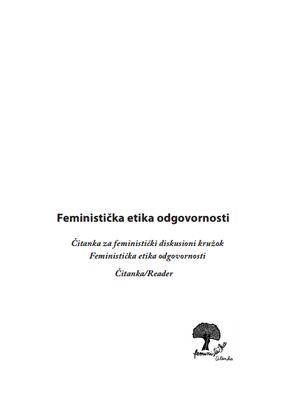

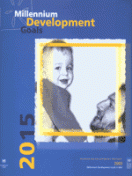
Bosnia and Herzegovina is facing a turning point. After the destruction of the 1992-1995 war and the subsequent, massive international reconstruction support, the country now finds itself at a crossroads between economic, social and political dependency on one side and the sustainability and local ownership of its development on the other. The Human Development/Millennium Development Goals Report for Bosnia and Herzegovina for the year 2003 is forward-looking and proposes policies in specific sectors that will help achieving sustainability and ownership. It also contains quantitative forecasts for the implementation of the Millennium Development Goals (MDGs) by 2015. // The MDGs are of critical importance for BiH. They provide a global context that determines previously under appreciated aspects of the globalisation process, especially with regards to poverty reduction, the humanisation of development, and the advancement of development aid. With this report and by implementing its recommendations and policies, BiH is actively joining the globalisation process, especially the activities of UN agencies and the UNDP in particular. One may argue that MDGs as such cannot be all that relevant for BiH context as the global goals have been defined too generically and detached from the present day of BiH. There also might be voices to express discontent with irrelevance of AIDS or maternal mortality, for example, in the country where these are not policy priorities. Yet, the question is - what BiH can do to prevent them from becoming issues before too late, and what real priorities the country can set in such areas as health, education and economy, outlined in MDGs. // Some statistics provide an optimistic, but perhaps misleading development picture of BiH, in light of global generic MDGs. Primary education rates stand far much higher than most of the developing countries, while maternal mortality figures are not high1. Yet, such a status quo is rather an inheritance from former socialist system. Unless the country embarks on the implementation of the mid and long-term development strategy, such achievements cannot be taken for granted forever given a current fragile economic outlook and insufficiency of public revenues. Furthermore, this report takes a look at disaggregated data to capture who are the vulnerable and neglected groups, and who would be the potential vulnerable ones, all of which should be taken into account when BiH governments and CSOs formulate development policies and implementhem in line with 8 ambitious MDGs. MDG 1 on poverty reduction seems to be a main challenge of BiH today, but it cannot be addressed in isolation of other MDGs as poverty reduction requires integrated and multisectoral approach that cannot be carried out if other MDGs are left aside. In other words, it would be myopic to formulate poverty reduction policies without taking education, health and environmental factors as relevant variables in an integrated manner. Goal 8 (on international cooperation) is also of utmost importance as it should enlighten the international community how to better address internally identified development priorities in BiH especially at a time when external financial support is on decline. // Therefore, this Human Development Report on MDGs attempts to assess problems, set priorities, and identify solutions along with BiH specific development indicators and benchmarks for all 8 goals. The report thus should enable governments and civil society organizations together to implement, monitor and evaluate country specific MDGs.
More...
Keywords: Vojvodina; identity; ethnic group; minority; human rights; multi-ethnicity; politics; protection of minorities; multi-culture;
(Serbian edition) Isticanje etničkog pluralizma Vojvodine predstavlja opšte mesto u retorici pokrajinskih političara, medija i predstavnika civilnog društva. Činjenica da na području Vojvodine žive pripadnici velikog broja nacionalnih manjina u toj se retorici uzdiže kao prednost i vojvođanska vrednost. Ovo naglašavanje višeetničnosti nije slučajno. Tokom raspada bivše Jugoslavije, multietnički karakter vojvođanskog društva često je bio na udaru. U sudaru sa heterogenom prirodom društva, novi politički ideal - nacionalna država - vrlo brzo je oslobodio svoje destruktivne potencijale. Nacionalistička histerija, nasilje, reduciranje prava i omalovažavanje vodile su marginalizaciji i izolaciji manjina, njihovom zatvaranju u uske granice vlastite etničke grupe, povlačenju iz sfere javnosti, iseljavanju u matične, odnosno treće države. Nakon 5. oktobra 2000. godine učinjeni su stanoviti pomaci u saniranju posledica Miloševićevog režima. Ti su pomaci, međutim, bili i ostali polovični. Donet je, recimo, zakon o Zaštiti prava i sloboda nacionalnih manjina, ali ne i zakon o načinu izbora i nadležnostima nacionalnih saveta. Na nivou republike i pokrajine formirani su, nakon zaoštravanja međuetničkih odnosa u Vojvodini, saveti za nacionalne manjine, ali oni, lišeni bilo kakvog realnog uticaja, vegetiraju pretvoreni u fasadne institucije. Spremnost države da se obračuna sa govorom mržnje i etnički motivisanim napadima je, najčešće, izostajala, što je kod manjina stvorilo utisak o selektivnoj primeni krivičnih paragrafa. Kampanja koju je, u cilju protežiranja tolerancije, svojevremeno vodilo Ministarstvo za ljudska i manjinska prava završila je neuspehom. Ni sadašnji projekat koji sprovodi Pokrajinski sekretarijat za upravu, propise i nacionalne manjine, neće uspeti ako njegovi napori na afirmisanju tolerancije i multikulturalizma ne budu snažno podržani od strane važnih društvenih podsistema.
More...
Keywords: extremism; social evil; anti-fascism; Serbia; woman; politics; crime; hatred; law; minority; radicalization; hooliganism; social norms;
Pojava ekstremne desnice i desničarske ideologije u Srbiji posledica su strukturalnih promena nakon razgradnje socijalističke države. Ratovi devedestih vođenih sa idejom o prekomponovanju Balkana, odnosno s idejom o Velikoj Srbiji (Memorandumu Srpske akademije nauka i umetnosti, 1986), samo su jedan od ideoloških osnova na kojima još uvek opstaje desna misao. Njene osnovne karakteristike jesu: etnička homogenizacija, težnja za stapanjem državnih i etničkih granica, antikomunizam i negiranje antifašizma, jačanje tradicionalizma i autoritarnosti, pravoslavlje tretirano kao superiorna religija u odnosu na ostale etničke i religijske grupe (posebno Hrvate, Muslimane i Albance), otpor idejama multikulturalizma i kosmopolitizma i netrpeljivost prema “novim” (LGBT popuacija) i tradicionalnim manjinama (Romi). Zajedničko svim desničarskim pokretima koji se pozivaju na ekstremni srpski nacionalizam i fundamentalističke interpretacije pravoslavlja, odnosno svetosavlja, jeste i izrazita islamofobija i neprijateljski stav prema svemu što je islamsko.
More...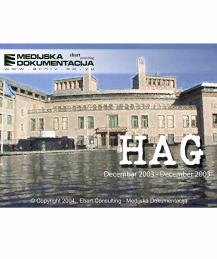
Keywords: ICTY; Serbia; media reporting; 2003; December; Večernje Novosti; Politika; Blic; Glas Javnosti; Nacional; Kurir; Balkan; Blic News; Danas; Vreme; NIN; Reporter; Ekonomist; arrests; extradictions; defence; investigations; indictiments; state cooperation;
Period: December 2003; Papers: Večernje Novosti, Politika, Blic, Glas Javnosti, Nacional, Kurir, Balkan, Blic News, Danas, Vreme, NIN, Reporter, Ekonomist; Topics: Arrests, Extradictions, Defence, Investigations, Indictiments, State cooperation, Trial, Sentences, Witnesses, etc...
More...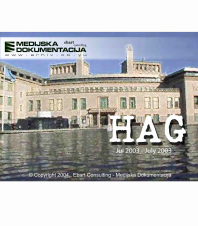
Keywords: ICTY; Serbia; media reporting; 2003; July; Večernje Novosti; Politika; Blic; Glas Javnosti; Nacional; Kurir; Balkan; Blic News; Danas; Vreme; NIN; Reporter; Ekonomist; arrests; extradictions; defence; investigations; indictiments; state cooperation;
Period: July 2003; Papers: Večernje Novosti, Politika, Blic, Glas Javnosti, Nacional, Kurir, Balkan, Blic News, Danas, Vreme, NIN, Reporter, Ekonomist; Topics: Arrests, Extradictions, Defence, Investigations, Indictiments, State cooperation, Trial, Sentences, Witnesses, etc...
More...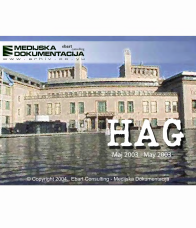
Keywords: ICTY; Serbia; media reporting; 2003; May; Večernje Novosti; Politika; Blic; Glas Javnosti; Nacional; Kurir; Balkan; Blic News; Danas; Vreme; NIN; Reporter; Ekonomist; arrests; extradictions; defence; investigations; indictiments; state cooperation;
Period: May 2003; Papers: Večernje Novosti, Politika, Blic, Glas Javnosti, Nacional, Kurir, Balkan, Blic News, Danas, Vreme, NIN, Reporter, Ekonomist; Topics: Arrests, Extradictions, Defence, Investigations, Indictiments, State cooperation, Trial, Sentences, Witnesses, etc...
More...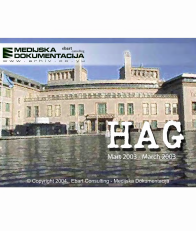
Keywords: ICTY; Serbia; media reporting; 2003; March; Večernje Novosti; Politika; Blic; Glas Javnosti; Nacional; Kurir; Balkan; Blic News; Danas; Vreme; NIN; Reporter; Ekonomist; arrests; extradictions; defence; investigations; indictiments; state cooperation;
Period: March 2003; Papers: Večernje Novosti, Politika, Blic, Glas Javnosti, Nacional, Kurir, Balkan, Blic News, Danas, Vreme, NIN, Reporter, Ekonomist; Topics: Arrests, Extradictions, Defence, Investigations, Indictiments, State cooperation, Trial, Sentences, Witnesses, etc...
More...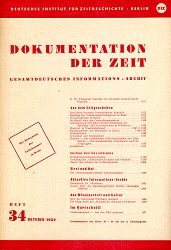
N. M. Schwernik visited the German Democratic Republic // Three years of the German Democratic Republic // Reception of the Volkskammer delegation in Bonn // Press conference in Berlin // White paper on the General War Treaty // Army General Tschujkow calls for the closure of the espionage and terrorist centers in West Berlin // Maneuvers in West Germany // Photo documents: The Stalinallee in Berlin // Statistics - The foreign trade of West Germany and West Berlin - The West German unemployed according to occupational groups // Production cooperatives // Founding of the "Society for Sport and Technology" // Law for the protection of public property // The standard of living of two working-class families // Dr. Pfleiderer's memorandum // Law on the civil rights of former officers // Should the University of Würzburg die? // A walk through the "Museum of German History" // Chemical monopoly - controlled by the USA
More...
for more detailed information regarding the content of this issue please download the Table of Content, which you find in the "Contents"-Tab as "Information"
More...
for more detailed information regarding the content of this issue please download the Table of Content, which you find in the "Contents"-Tab as "Information"
More...
for more detailed information regarding the content of this issue please download the Table of Content, which you find in the "Contents"-Tab as "Information"
More...
for more detailed information regarding the content of this issue please download the Table of Content, which you find in the "Contents"-Tab as "Information"
More...
for more detailed information regarding the content of this issue please download the Table of Content, which you find in the "Contents"-Tab as "Information"
More...
for more detailed information regarding the content of this issue please download the Table of Content, which you find in the "Contents"-Tab as "Information"
More...
for more detailed information regarding the content of this issue please download the Table of Content, which you find in the "Contents"-Tab as "Information"
More...
for more detailed information regarding the content of this issue please download the Table of Content, which you find in the "Contents"-Tab as "Information"
More...
Juhan Smuul: The amazing adventures of the Muhumers at the Singer Festival // Vilis Lacis: Two worlds // Miervaldis Birze: Today's children / How the story came about // Egon Rannet: The prodigal son // POEMS: Ojars Vacietis: On the future power line / March // Mirdza Kempe: happiness // Andris Vejans: Grow, homeland! // Arvids Skalbe: The most beautiful flower // Valdis Lukss: That can't exist! // Karlis Kraulinš: Latvia's popular writer // Rudolf Sirge: Erni Krustens Schaffensweg // Lembit Remmelgas: Juhan Smuul // Friedebert Tuglas: Thoughts and ideas
More...
Keywords: J. B. Tito; A. de Tocqueville; Gobineau; Martha Dodd;
More...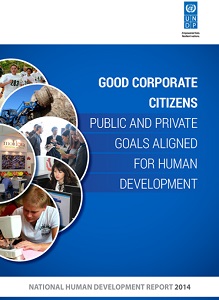
The 2014 National Human Development Report clearly shows that the role of the private sector in generating human development transcends that of a tax-payer and a creator of jobs, important though these contributions are. The report presents a thoroughly documented review of global and national experience to demonstrate how the private sector can play the role of catalyst for change by promoting new approaches, technologies, services and policy proposals. We trust these examples will inspire all of the many actors who have a part to play in this and help to drive further the efforts of the Moldovan business community to advance the modernization of the country. // The sustainable and inclusive development of Moldova in a way which benefits all people will occur only if Government, the private sector and society at large join efforts to achieve this goal. The 2014 report seeks to identify what can drive the private sector’s contributions to economic and social progress, what the obstacles are, and how an ecosystem conducive for stronger private–public development engagement can be attained. It provides a set of well-defined policy recommendations for all national actors, including central government and private companies, which we hope will continue the discussions started in the process of formulating the report.
More...